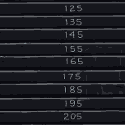|
Question. How certain are the drought predictions in the models, like the ones that call for possible desertification of the Midwest? I thought the oceans are what really drive rainfall in North America, so I'm a bit confused as to how warming can lead to such a dramatic change of weather patterns. Does the jet stream get hosed with or something? Air from Canada will still be cool, and water will still be evaporating from the gulf and colliding with it.
|
|
|
|

|
| # ? May 28, 2024 12:29 |
|
WoodrowSkillson posted:Question. How certain are the drought predictions in the models, like the ones that call for possible desertification of the Midwest? I thought the oceans are what really drive rainfall in North America, so I'm a bit confused as to how warming can lead to such a dramatic change of weather patterns. Does the jet stream get hosed with or something? Air from Canada will still be cool, and water will still be evaporating from the gulf and colliding with it.  See the yellow line that runs through the OK panhandle? That's a rainfall boundary at about the 100th meridian. That's about as far west as moisture from the Gulf makes it in quantity to support unirrigated agriculture. The whole region west of the 100th has been semidesert or desert in the past; see: the Nebraska sand hills. In wet periods, the 20" rainfall line presses west. Dry periods it shifts east. That boundary is sensitive enough that we've seen it wander with significant consequnces historically -- without the effects of large scale AGW. So, the first Europeans through there talked about the Plains west of the 100th as the "great American desert" and described it as a wasteland. So there's these reports from US Army columns and the like describing shifting sand dunes. In the latter half of the 19th century, after about 1865, the Plains went wet, and all this scorched grassland was rolling prairie again. Settlement boosters laughed off the "great American desert" and the would-be farmers moved in in droves. John Wesley Powell, not to mention the freakin Indians that lived there, knew this, and one of Powell's moves was to try and get the federal government to shut down settlement in the west until it could be surveyed by climactic region, mapped, and homesteading parcels adjusted for size and access to water and timber. So for instance, his thinking was that in river bottomlands next to constant water, you don't hand out 160 acre parcels, you hand out 40 acre parcels. That's enough for a family.But in dry grassland, you would only grant parcels to farmers' cooperatives, and you'd have them situate small homestead parcels near reliable water, but grant the co-op 2500 acres or even more as dry rangeland. The closest he got was a closure of the Idaho land office for two years, until the survey requirement was stripped by Congress and the free for all of fraud, waste, genocide, and idiocy went right on. At least we got the USGS out of it. In terms of being grassland/desert the Plains are hanging right at a margin. So with the dustbowl, part of that was, higher temperatures and extended drought stripped the soil of moisture, and, meanwhile, the prairie cover had been sodbusted to farmland, leaving big tracts as exposed dirt. Wind hits it, and away the topsoil goes. Desertification. Models of what's going to happen to rainfall patterns look like this:  All those regions with lower precipitation are beasically headed to permanent dustbowl. That doesn't mean things are going to be smooth sailing for the northern Plains; if that increased precipitation comes mainly in winter, say, or as downpours in the summers, you could end up with spring floods and scorching periods of summer heat interspersed by big 'ol Plains thunderboomers dropping hail and flashflood quantities of water. So yeah, moist air will still come off the Gulf and whack cold air coming from Canada, but most of the rainfall will happen farther north. tatankatonk fucked around with this message at 21:14 on Nov 30, 2012 |
|
|
|
Did you guys see this: http://www.nasa.gov/mission_pages/Grace/news/grace20121129.html ? A new study from NASA and the ESA. It's pretty bad news all the way around. Not only are both Greenland and Antarctica losing ice, but their both losing it faster than we previously thought. Something like a net loss of 60 billion tons a year from the Antarctic ice sheet, plus a quantifiable five-fold increase in loss from the Arctic since 1992. Probably not unexpected to people who follow this closely, but I was definitely startled by the speed and scope of the increase. What's the speculative possibility of growing food on the lands exposed by retreating ice sheets? Is that even possible at all?
|
|
|
|
lasts years man posted:Did you guys see this: http://www.nasa.gov/mission_pages/Grace/news/grace20121129.html ? How much do you want to bet that climate change deniers will cherry pick the fact that East Antarctica is actually gaining mass because of excessive snowfall from this report, without mentioning that West Antarctica and Greenland's ice losses more than make-up for this gain, or that the snowfall in East Antarctica is exactly what you would expect with a warming planet? Or maybe they've already done this.
|
|
|
|
lasts years man posted:What's the speculative possibility of growing food on the lands exposed by retreating ice sheets? Is that even possible at all? I'd say not possible. First of all, it's going to take awhile for plants to break up the rocks that are left behind into soil that you can grow crops on. Also, much of that land is still in areas that are not ideal for crops, especially above the arctic circle where you have such extreme seasons.
|
|
|
|
Is there any sign at all that public sentiment is shifting against global warming denialism? I don't want to die.
|
|
|
|
Wubbles posted:Is there any sign at all that public sentiment is shifting against global warming denialism? I don't want to die. Very few people genuinely believe global warming isn't happening, or isn't anthropogenic. They just have to act like they're "skeptical", because they'd be run out of town if they came right out and said, "Yes, it's happening, but I'll lose money if we do anything about it."
|
|
|
|
OwlBot 2000 posted:Very few people genuinely believe global warming isn't happening, or isn't anthropogenic. They just have to act like they're "skeptical", because they'd be run out of town if they came right out and said, "Yes, it's happening, but I'll lose money if we do anything about it." ...Source? About half of the American public doesn't believe in anthropogenic climate change (anecdotally, none of my 'worked in the oil patch in Alberta their entire lives' family believes it) according to anonymous polling / surveys. Granted, they might be lying on the surveys, but that's the only data we have. It's pretty dishonest to take all of those surveys, say, "Meh, they're all lying anyway. I'm sure most people believe it."
|
|
|
|
Natural Gas (and by association fracking) get marketed as clean and green. So it must be a solution Nuclear is needed immediately, but plenty of people don't understand that fossil fuels are the root of the problem, and NG is just another one. From the space thread: https://www.youtube.com/watch?v=KobRfGqlpGc Someone is taking these problems seriously and the effort needs to be expanded.
|
|
|
|
All of you talking homesteading and crash shifting to micro-gardens are missing a few big farming issues. Chiefly, germination factors. Things like water pH will be easy enough to correct for, and last time I checked oxygen levels will be within tolerance. But temperatures will be a big problem. Anything that needs vernalization (exposure to cold) to break dormancy is going to get clobbered by this (that would be most of our fruits). A 4-6 C shift will also throw off most of the ranges for most of our crops. Most of them germinate 16-24 C Here is a table of germination (It is in F unfortunately) Here is one in C that I pulled from a PDF and converted (I rounded down if anyone wants to quibble) code:Basically the only way to handle this will be genetic engineering of the crops so that they will germinate in the new temperatures, or large scale controlled farming (vertical farms in the extreme, massive freezers to simulate vernalization at a minimum). Tempus Fugit people. Realistically, humanity will put another 1-4 teratons (1,000,000,000,000 tons) of carbon in the atmosphere. 4 is the cap of extractable fossil fuels, 1 is if you are optimistic about how fast we can shift. Even if we did it NOW, full stop, we would still see the impact from what we have already done, which has us playing global Russian Roulette as it is. At this point I think the discussion needs to be how we adapt to and minimize the impact of the change. Stuff like the germination issue gets little coverage, but we need to start talking about it. Fried Chicken fucked around with this message at 20:20 on Dec 1, 2012 |
|
|
|
The Ender posted:...Source? McDowell posted:Natural Gas (and by association fracking) get marketed as clean and green. So it must be a solution ... is that narrated by Norm MacDonald? Fried Chicken fucked around with this message at 20:17 on Dec 1, 2012 |
|
|
|
Fried Chicken posted:Half the American public is very few people. They just have a very loud voice and a lot of power. What does that imply about the world's future?
|
|
|
|
Wubbles posted:What does that imply about the world's future? Read the thread title
|
|
|
|
quote is not edit
|
|
|
|
The Ender posted:About half of the American public doesn't believe in anthropogenic climate change (anecdotally, none of my 'worked in the oil patch in Alberta their entire lives' family believes it) OwlBot 2000 fucked around with this message at 20:29 on Dec 1, 2012 |
|
|
|
Fried Chicken posted:Read the thread title I was hoping that was an exaggeration.
|
|
|
|
Wubbles posted:I was hoping that was an exaggeration. I suppose that depends on how you want to define "screwed". Climate change isn't the only thing gunning for us. We have things ranging from the emergence of the panopticon to superbugs to water shortages to running out of critical supplies like phosphates. All of these have secondary and tertiary effects that have to be addressed as well. It is really, REALLY hard to overstate the problems that lie ahead. We face enormous challenges in our life times. Not as individuals, or nations, or a class, but as a species. Our usual work-arounds will not help here - the free market or science won't invent a replacement for phosphates, they are a critical building block of life. But that doesn't mean we are doomed either. A few pages back someone said we would see the end of liberal western democracy as we know it due to climate change. This is a true statement, but not a particularly informative one. Liberal western democracy today looks nothing like it did when our parents were born. It looks completely alien to when our grandparents were born. It changes with the time and circumstances, and if climate change wasn't going to be the big shift, the demographics of western nations would or the change in technology would. Things are going to change. They have to - for climate change we have done too much damage already, and the challenges are too big for it and everything else. They are going to change at a faster rate - we have more brains working with more information and swapping it back and forth now. It is going to spin off in some bewildering ways. When Moore was talking microchips production, one of the Intel executives sarcastically responded that if it were true people would be using processors in doorknobs. Have you gone to a hotel lately? A lot of the changes will not be good, or at least not good for everyone - look at high frequency trading. A lot of them will be great - look at what cell phones are doing for Africa. Will we make it? Probably, but what we make it into isn't something we can really predict. Law of averages say some of the big changes will help us, but most of our long standing institutions won't end up standing. I'm ok with that - it is the nature of things. The sun set on the British Empire after all. But it means that we can't become complacent, or we are out of the running. If you are hoping to have the stereotypical American life with a few small tweaks like a victory garden or solar panels or homesteading; of a stable career and family where power and structure mean that today is more or less like yesterday and you can take things at a leisurely pace, then yeah, you are screwed. That's what most people have been doing since 2000, and it ended up with the changes they were ignoring blowing up the global economy and taking them out with it. The same principle applies here. A lot of stuff is coming down the pipe, so if you want to make it out you need to stay on your toes. If you are willing to embrace the new and scary and weird, and constantly learn and experiment and interact, willing to keep apace of what is happening and think outside the box, you and your family will probably be ok. The future is going to be strange and dangerous and beautiful and horrifying. We can see some trends in it, but the black swans and the missing data points and the human factor means it will be a mystery until we get there. And the only way to make it that far and survive is to embrace change and roll with it. Jump in. Fried Chicken fucked around with this message at 21:33 on Dec 1, 2012 |
|
|
|
Thanks for spending the time to write that. I've felt awful all day.
Wubbles fucked around with this message at 21:55 on Dec 1, 2012 |
|
|
|
No actually it will be mad max I hope you have a cool leather jacket and a dog.
|
|
|
|
WoodrowSkillson posted:No actually it will be mad max I hope you have a cool leather jacket and a dog. More seriously, I imagine something like the descriptions in The Grapes of Wrath. Only, y'know, permanent this time.
|
|
|
|
WoodrowSkillson posted:Question. How certain are the drought predictions in the models, like the ones that call for possible desertification of the Midwest? I thought the oceans are what really drive rainfall in North America, so I'm a bit confused as to how warming can lead to such a dramatic change of weather patterns. Does the jet stream get hosed with or something? Air from Canada will still be cool, and water will still be evaporating from the gulf and colliding with it. One way CC will disrupt weather is by altering the temperature differential between the latitudes. I'm sure you've heard that the poles are warming faster than the rest of the globe. This is important because fronts are driven by pressure differentials, or the difference in temperatures. When the difference shrinks there is less energy driving cold air south and warm air north. This isn't much related to drought in the U.S. sw, which I believe is more related to changes in the Hadley Cell system, but it is theorized it could cause more distructive storms. The idea is that with weaker fronts storms are more likely to stall out and hammer one unlucky city rather than moving inland and losing energy.
|
|
|
|
The Ender posted:More seriously, I imagine something like the descriptions in The Grapes of Wrath. Only, y'know, permanent this time. That's what I've imagined, only crueller. It's a very apt story (and we've just seen some good stats on the Dustbowl), because very large numbers of people aren't simply going to stay put and suffer where they are. They're going to move.
|
|
|
|
I've seen some rather complex refutations of the evidence for man made global warming. It seems to me that all of that is kind a ruse to show what the science says. To me it seem, and correct me if I'm wrong, the bulk of the denialist argument stems from the fact that it costs money and involves collective behavior to combat/cope with it. If neither of those two elements existed, there would be no problem in accepting the issue. Is this fair to say?
|
|
|
|
Rip Testes posted:I've seen some rather complex refutations of the evidence for man made global warming. It seems to me that all of that is kind a ruse to show what the science says. To me it seem, and correct me if I'm wrong, the bulk of the denialist argument stems from the fact that it costs money and involves collective behavior to combat/cope with it. If neither of those two elements existed, there would be no problem in accepting the issue. Is this fair to say? Yes. The detractors believe combatting climate change is a trojan horse for implementing one world government and massive socialism/communism, hence they come up with bogus arguments against it rather than just stating their real objections. The trading system was implemented in part to address these concerns, but there still needs to be some level of international commitment/enforcement otherwise it won't work.
|
|
|
|
The thing is - and this is where I depart from the mainstream liberal philosophy in America - it won't just cost money and involve collective effort. Global warming means that the American standard of living simply isn't viable, the environmental costs are too great. Until this is accepted, we won't be effective at combating climate change, even if a number of other positive reforms are enacted.
|
|
|
|
Hopefully America is disabused of its infinite growth fairytale soon, because judging just from the rhetoric of the 2012 election there is very little clarity on this issue to most of America, and the mainstream media completely ignores it.
|
|
|
|
UP AND ADAM posted:Hopefully America is disabused of its infinite growth fairytale soon, because judging just from the rhetoric of the 2012 election there is very little clarity on this issue to most of America, and the mainstream media completely ignores it.
|
|
|
|
TACD posted:I think this is a core part of the problem and is a real sticking point. The whole consumerist / endless growth paradigm is so baked in to modern Western life at this point that most people don't even realise it's there. And once you take growth out of the picture pretty much every element of modern society comes tumbling down, which is when people fall back on the old "that's absolutely unconscionable and must therefore be untrue" fallacy. This is maybe going a little bit far afield, but I've been thinking a lot about ideologies of progress, growth, etc., and in that context I found this blog post really interesting: http://belate.wordpress.com/2012/03/28/marx-arendt-koselleck-on-modernity/ In particular, this passage: quote:Koselleck arrives at a similar judgment about the instrumentalization of history in Marx but does so less in terms of means-ends than in the more pernicious concept of progress that it implies. Like Arendt, Koselleck identifies the concept of process as a fundamental feature of modern historical consciousness. What Koselleck adds to the concept of process, however, is its constitutive link to the concept of prognosis, which combined to produce the imagination of progress. According to Koselleck, with the secularization of the political, prognosis emerged as the antonym to that former paradigm of futurity, namely, prophecy. Rather than prophets hypostasizing the what-will-be, politicians became something like rational soothsayers. To paraphrase Koselleck, calculative politicians supplanted superstitious prophets, whose prognoses of the future became the defining and determining element of political action, and by extension, of historical meaning in general. I think the post that Fried Chicken was responding to above making the claim that the modern liberal democratic capitalist status quo wasn't going to survive was probably one of mine. I think I said that in part because every couple of pages in this thread there's someone apparently in deep despair about the now-inevitable demise of that status quo (usually expressed as something like "we're all going to die/go extinct/whatever!!"), and, like Fried Chicken, I think that reaction and the associated hand-wringing about how to maintain that status quo are totally useless. I think that reaction would have been totally foreign to, say, medieval Christians, who mostly accepted that, indeed, we're all going to die, and the world's going to end, and probably sooner rather than later. I have kind of a weird relationship to that reaction as a western Muslim because I'm kind of straddling this ideological divide. On one level, I totally relate to the kind of visceral angst of knowing that extinction is an increasingly likely possibility. Fried Chicken gave a plausible emissions range of 1-4 Tt CO2 equivalent- the lower end of that range takes us to ~500 ppm carbon, the consequences of anything above that are going to involve the reduction of the carrying capacity of the earth by a couple of orders of magnitude at least. At the same time, as a Muslim, if these are the last days, mashallah. It doesn't change anything for me- I'm still responsible for my conduct on a day to day basis. Theres a hadith (prophetic tradition) which says something like "Even if the end of time is upon you and you have a seedling in your hand, plant it!" To me, that about sums it up. We're all going to die, humanity's story will end at some point, but I knew that already- what matters is making the best of the "time remaining" ("messianic time"). That perspective keeps from despair and "on my toes" as Fried Chicken has it. What I wonder about is the extent to which the angst reaction is really a response to the collapse of the ideology of progress Koselleck is talking about. That's a really interesting question for me- what happens when that ideology is no longer tenable? States have been dealing with millenarian movements among their poor and dispossesed, and their peripheries, for millenia, and it's only recently that they seem to have mostly petered out. The notion that the ideology of progress was the kind of state counter to the fervour that arises from eschatological prophetic traditions makes sense to me, and the collapse of that counter is going to, I think, be as profound a dislocation as any of the biophysical effects that usually get discussed in this thread.
|
|
|
|
quote:I've seen some rather complex refutations of the evidence for man made global warming. It seems to me that all of that is kind a ruse to show what the science says. To me it seem, and correct me if I'm wrong, the bulk of the denialist argument stems from the fact that it costs money and involves collective behavior to combat/cope with it. If neither of those two elements existed, there would be no problem in accepting the issue. Is this fair to say? Well, not entirely. You'll always have people like, say, Richard Lindzen, with their own pet theories and - frankly - a desire to stand out from the crowd / become famous by being a contrarian. You can see it in a lot of the rallies that the skeptics show-up at: they get treated like rock stars. You're certainly right about the popular media narrative, though. Conservatives & Libertarians deny it because if it's true, then their worldview faces a very serious challenge.
|
|
|
|
seniorservice posted:Or maybe they've already done this. Looks like it? http://www.forbes.com/sites/jamestaylor/2012/09/19/antarctic-sea-ice-sets-another-record/
|
|
|
|
quote:Interestingly, a new NASA study finds Antarctica once supported vegetation similar to that of present-day Iceland. I do love these little smug tidbits at the end of denialist articles, where the idiot essentially starts hedging their bets. "Oh, it's not real. But even if it IS real, look, Antarctica was once a lush environment!" Of course, Antarctica was not in it's current position / configuration (it's an archipelago, not one continuous landmass), the sun was dimmer in the Earth's prehistoric past, and it's not at all clear that any prehistoric climate would've been compatible with modern human society. But the article kinda skims-over that information.
|
|
|
|
To what extent are most colleges invested in oil companies as part of their endowments? My alma mater is not the most transparent when it comes to such things so I don't even know where to begin in trying to find out. I am thinking of starting a divestment petition, since its one (somewhat) effective venue I have to express myself (okay, somewhat effective might be putting it too optimistically). But I don't want to start one if it turns out that they don't have any funds invested in fossil fuel companies. They tend to take alumni feedback and opinions seriously. Oh wait, that's only when said alums have the money to donate towards new football stadiums and the like. Ah well. Why the hell not, I say.
|
|
|
|
Does anyone with applicable knowledge or experience care to comment on this: http://www.bbc.co.uk/news/uk-england-hampshire-15717989 Basically a reasonably large (well kinda) and inhabited British island wants to become self sufficient in energy using 'a waste to energy plant, solar panels and tidal and geothermal power.' and I also heard they have plans for self sufficiency of food. Pipedream? Impractical? Potentially a blueprint? I really don't know but hopefully one of you does!
|
|
|
|
namesake posted:Does anyone with applicable knowledge or experience care to comment on this: Self sufficiency is a practical imposibility, however I don't see why someone can't be energy self sufficient. If you can do it for your home with solar cells and wind (People in the north west of australia do it all the time, because its cheaper than paying to get electricity piped in a few hundred kilometers to a single house) I'm sure an island can.
|
|
|
|
But surely this is a pretty important attempt at converting an actual energy grid in a developed economy to self sufficiency (not 100% sure what you mean by that being impossible unless you mean having to rely on environmental factors and materials to harness it which is just obvious)?
|
|
|
|
Are there good resources on what an individual can do to decrease carbon footprints?
|
|
|
|
namesake posted:Does anyone with applicable knowledge or experience care to comment on this:  MrBond posted:Are there good resources on what an individual can do to decrease carbon footprints? 
TACD fucked around with this message at 03:37 on Dec 4, 2012 |
|
|
|
Terrifying news, everybody!quote:Global carbon dioxide emissions are set to rise again this year, putting the world on a path toward dangerous climate change and making the internationally-accepted warming target of 2 degrees Celsius nearly “unachievable,” say researchers. Well, maybe not news, I don't think this is a surprise to anybody. But I'm going to change the way I frame this conversation to people now; there's no point in talking about trying to avoid this catastrophe. TACD fucked around with this message at 03:48 on Dec 4, 2012 |
|
|
|
namesake posted:But surely this is a pretty important attempt at converting an actual energy grid in a developed economy to self sufficiency (not 100% sure what you mean by that being impossible unless you mean having to rely on environmental factors and materials to harness it which is just obvious)? Read the sentence more closely.
|
|
|
|

|
| # ? May 28, 2024 12:29 |
|
TACD posted:Terrifying news, everybody! Funny thing; I was looking for a documentary on the Cretaceous period yesterday because I was just in the mood to hear some British narrator or perhaps Morgan Freeman tell me about dinosaurs. I found this documentary on the Permian mass extinction instead: https://www.youtube.com/watch?v=wn62AjIpWMw Now, obviously we don't know the precise details, but we have a pretty reasonable hypothesis: The Siberian Traps erupted, slooowly raised global temperatures via gradual CO2 release by about 5 degrees over a few thousand years (remember, we're raising the temperature much faster than this). This temperature increase triggered the melting & release of frozen methane formations under the sea, which immediately raised global temperatures another 5~ degrees - and the resulting warming epoch killed maybe 90~ percent of life on earth.
|
|
|

























